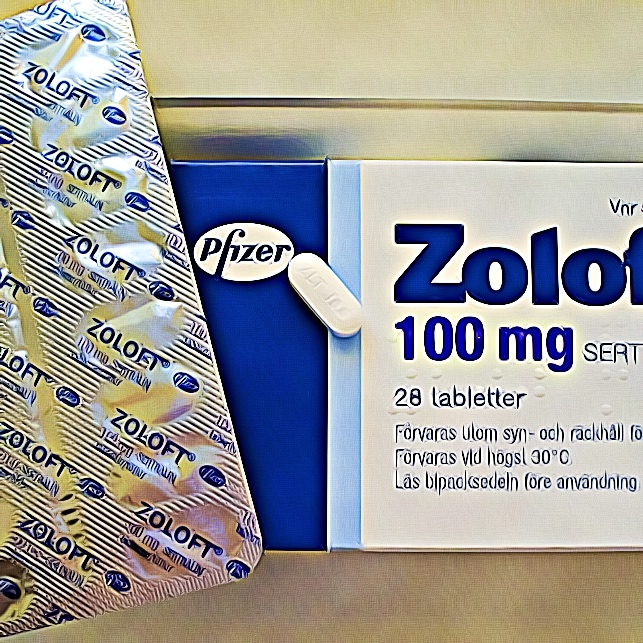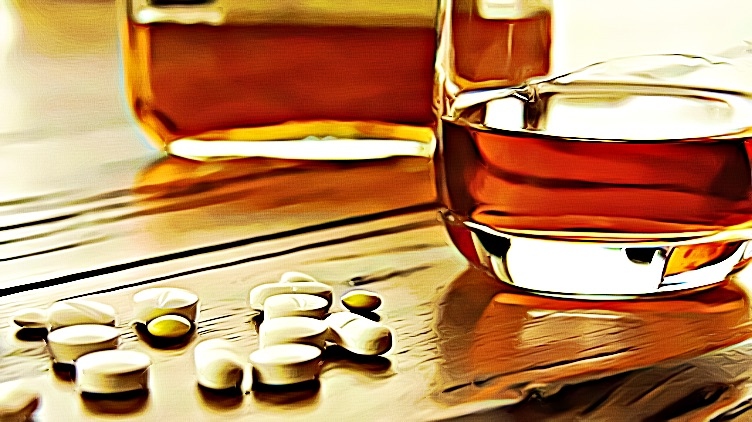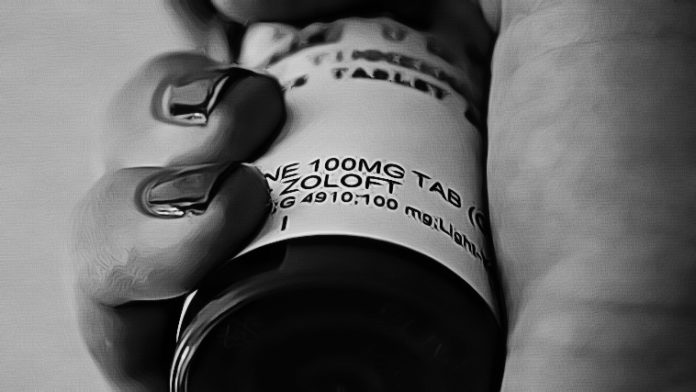Mental health wellness today is more important to many than it ever was. An increasing number of individuals seek treatment and medication to assist with dealing with various mental illnesses, such as depression, anxiety, bipolar, and addiction. Fortunately, those living in 2020 have so many more opportunities to get the help they need. While it may seem like it can still be quite costly, a few years down the road can change things for those suffering from mental illnesses. Though there are benefits with using Zoloft, earn more about its uses, overdosing, withdrawals and the dangers of mixing Zoloft and alcohol.
What Is Zoloft?
Commonly known as sertraline, Zoloft is prescribed to individuals who have depression. Since those who have illnesses like major depressive disorder (MDD) suffer from damaged serotonin production, sertraline works to improve it. The drug is a selective serotonin reuptake inhibitor (SSRI), assisting in regulating mood swings, behavioral issues, and improving the lack of motivation in depressed individuals. Zoloft is used to treat other kinds of mental illnesses like social anxiety and obsessive-compulsive disorders, but discovering the right mix is essential to remove the pharmaceutical’s nastier side effects.

First-time users of Zoloft often have to go through an adjustment period to get used to the drug’s presence in their bodies. The first few weeks are typically tricky, as individuals may experience nausea, extreme drowsiness and fatigue, light-headedness, and even difficulties eating. These are the most common side effects of first time SSRI use, as the brain often goes through a period of uptake, making it rather uncomfortable initially.
Zoloft for Anxiety
On the topic of overall health and wellbeing, those with chemical imbalances in their brains need a treatment program and correct medications. Those who suffer from addiction typically use pharmaceuticals to curb anxiety and depression caused by excessive substance use. Addiction naturally comes with other pressing mental health issues, so many opt for medications like Zoloft for their treatment.
Zoloft Side Effects
There are other less common side effects of Zoloft, and these can often be damaging to a person’s life if not reported promptly. Any other severe experiences than the usual discomforts must be reported to a psychiatrist to monitor and make adjustments. These side effects include irregular bowel movements, difficulties sleeping properly, profuse sweating, inconsistent sex drive, tremors, excessive anxiety, and suicidal thoughts. Experiencing any of these circumstances merits a doctor’s visit to observe the effects of sertraline on a person’s body and brain chemistry.
Zoloft and Alcohol
Taking multiple drugs at once is never a good idea, and even legally available pharmaceuticals are supposed to be monitored to ensure they have no adverse effects. Various drugs in the market can have compounds and chemicals that counteract each other, so it is never a good idea to self-medicate.
Alcohol is one drug that can have adverse side effects when mixed with pharmaceuticals. Many doctors and experts advise against drinking alcohol after taking medications, as these can be damaging in multiple ways. SSRIs and alcohol never work well together, as alcoholic beverages are downers that can significantly affect the way SSRIs work.
Not much is known about the real effects of alcohol on pharmaceuticals, but many have reported adverse effects when drinking while medicated. Companies like Pfizer, which makes plenty of drugs, have mentioned that those who suffer from depression, panic disorders, or even OCD are not supposed to take Zoloft while drinking. It might result from chemical imbalances and the downer-effect of alcohol, which plays with the way SSRIs offer serotonin to the brain. Whatever the reason is, drinking should be considered for those who suffer from mental illnesses and take medications because of their chemical nature.
While under Zoloft’s effects, those who drink heavily might experience a lack of muscle coordination, impaired memory, slurred speech, drowsiness, low blood pressure, dropped heart rates, and others. There have also been reports of death and users being rushed to the emergency room because of the damaging effects of loading SSRIs and alcoholic beverages. Additionally, some have noted that Zoloft’s effects are reduced when consumed with downers because things like alcohol can make depression worse. Some might even develop extreme suicidal tendencies as a result of the counteracting effects of the drug.
Zoloft Overdose
Overdosing on Zoloft is possible, just like with any other pharmaceutical. While taking the pill is already potent, the combination with alcoholic drinks can make the sedative effects very powerful. Too many sedatives in a person’s body can be fatal and create liver complications, as SSRIs are typically absorbed and processed by this organ. Alcoholic drinks also heavily affect the liver and can damage it permanently. When mixing these two often, the impacts on bodily health and functions can be severe, ultimately leading to death.
If you absolutely must drink, it is advisable to skip taking daily medications that day to prevent overloading the liver. Zoloft’s sedative nature means that those who take it must not operate a vehicle or heavy machinery when consumed, as these can cause delays in judgment.
In general, overdosing on pharmaceuticals is not advisable, which is why they are typically given in small dosages to prevent stress on the endocrine system. When introducing other antidepressants and anti-psychotic medications into the mix, this places even more weight on the procedures, making it inadvisable to drink.
Overdose symptoms can look like the common side effects mentioned above, but more severe ones can include hallucinations, mania, and other alarming effects like fainting. If one takes too many, it can result in death or overall organ shutdowns because of overloading the body with potent chemicals.

Zoloft Withdrawal
Withdrawals can come in the form of drug and alcohol withdrawals, which is why removing medications like Zoloft must be done incrementally and never abruptly. The body needs time to adjust to the pharmaceutical dosages slowly, so not taking them for a week can cause shocks to the mind and body. Suffering from the effects of the abrupt removal of this drug can cause agitation, heavy sweating, hallucinations, and even fainting. Since this medication takes place in the mind, the link it makes with cognitive functions can cause damage without psychiatric help.
Sometimes, one may end up in the hospital due to Zoloft’s withdrawal effects. There are reports of individuals acting on suicidal tendencies due to the massive brain chemistry shift caused by the drug’s removal. In this case, it is essential for those heavily dependent on it to ease it out of their system slowly. Pharmaceuticals can be deadly, especially those that are for mental illnesses.
Not everyone understands the sensations caused by withdrawals from being heavily dependent on substances, which is often why drug rehabs also offer detox programs. Detox work helps flush out the addictive nature of substances safely and is typically meant to be done in a controlled environment to prevent any relapses and self-harm.
Zoloft is a famous pharmaceutical for those suffering from depression. Even those who struggle with addiction can benefit from sertraline because of the chemical imbalances in their brains. However, it is essential not to mix other drugs and substances in the mix because things like alcohol can damage a user’s liver and lead to severe health complications. If a patient is hooked on Zoloft and has been consistently using it, a good detox program must be done if it needs replacement.
Sources:
https://www.nami.org/About-Mental-Illness/Treatments/Mental-Health-Medications/Types-of-Medication/Sertraline-(Zoloft)
https://medlineplus.gov/druginfo/meds/a697048.html
















